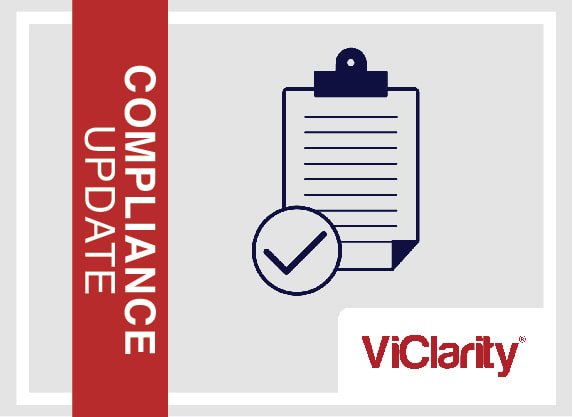|
The Dakota Credit Union Association’s dues-supported compliance solution – ViClarity – is a world leader in credit union compliance. To read the complete articles/answers that are linked, you will need to log in with your username and password. If you have questions about establishing your members-only account with ViClarity, click here for detailed instructions or contact John Alexander in the DakCU office.
January 2024 FAQs Q: What is the retention period for Military Lending Act safe harbor data? A: The regulation contains a safe harbor method to determine if a borrower is considered “covered.” The credit union can verify the status by using information related to the borrower, obtained directly or indirectly from the Department of Defense (DOD) database. Read more on the topic here. Q: What fraud should our credit union be on the lookout for as it relates to mortgage loans? A: The fraud includes but is not limited to Income and Employment Fraud; Appraisal and Valuation Fraud; Occupancy Fraud; and Identity Fraud. Credit unions are encouraged to file suspicious activity reports for suspected fraudulent activity on mortgage lending. Read more on the topic here. Q: If a credit union uses an AI vendor to screen loan applications, is this information insured against defects? A: Your credit union will need to understand what went into the criteria used. The CFPB has stated that AI will adopt any bias that is programmed into it. If AI is used in your screening process, there is a risk of implementing aggressive or unfair practices, so your credit union will need to vet your vendors’ process and do its own due diligence to ensure the data is collected and used in alignment with your internal compliance processes and policy. Read more on the topic here. Updated FAQs on Beneficial Ownership Information Reporting Recently, the Financial Crimes Enforcement Network (FinCEN) updated the FAQs on the Beneficial Ownership Information (BOI) Reporting rule as a response to some questions that it had received on the rule. The FAQs do not modify or change the underlying rule in any way but do provide some useful information on how to comply with the reporting requirements. Read more on the topic and find additional resources here. CFPB Guidance on Background Screening and File Disclosures in Credit Reporting Last week, the CFPB provided guidance to consumer reporting companies addressing issues of inaccurate background check reports, as well as sloppy credit file sharing practices. More specifically, the CFPB issued two advisories to ensure that consumer reporting systems provide accurate and reliable information without simultaneously causing a barrier to persons attempting to access their personal information. Read more on the topic and find additional resources here. FinCEN Analysis of Identity-Related Suspicious Activity FinCEN has released a Financial Trend Analysis with information on identity-related suspicious activity in Bank Secrecy Act (BSA) reports filed in the 2021 calendar year. The report details the exploitation of identity-related processes by bad actors. The analysis showed that approximately 1.6 million reports related to identity, which translates to roughly $212 billion in suspicious activity. FinCEN remains committed to using its authority to assist financial institutions with detecting, reporting, and preventing criminals from victimizing consumers. Read more on the topic and find additional resources here. Comments are closed.
|
The MemoThe Memo is DakCU's newsletter that keeps Want the Memo delivered straight to your inbox?
Archives
July 2024
Categories
All
|
|
Copyright Dakota Credit Union Association. All Rights Reserved.
2005 N Kavaney Dr - Suite 201 | Bismarck, North Dakota 58501 Phone: 800-279-6328 | [email protected] | sitemap | privacy policy |





